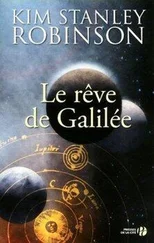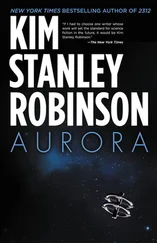Kim Robinson - In Pierson’s Orchestra
Здесь есть возможность читать онлайн «Kim Robinson - In Pierson’s Orchestra» весь текст электронной книги совершенно бесплатно (целиком полную версию без сокращений). В некоторых случаях можно слушать аудио, скачать через торрент в формате fb2 и присутствует краткое содержание. Жанр: Фантастика и фэнтези, на английском языке. Описание произведения, (предисловие) а так же отзывы посетителей доступны на портале библиотеки ЛибКат.
- Название:In Pierson’s Orchestra
- Автор:
- Жанр:
- Год:неизвестен
- ISBN:нет данных
- Рейтинг книги:4 / 5. Голосов: 1
-
Избранное:Добавить в избранное
- Отзывы:
-
Ваша оценка:
- 80
- 1
- 2
- 3
- 4
- 5
In Pierson’s Orchestra: краткое содержание, описание и аннотация
Предлагаем к чтению аннотацию, описание, краткое содержание или предисловие (зависит от того, что написал сам автор книги «In Pierson’s Orchestra»). Если вы не нашли необходимую информацию о книге — напишите в комментариях, мы постараемся отыскать её.
In Pierson’s Orchestra — читать онлайн бесплатно полную книгу (весь текст) целиком
Ниже представлен текст книги, разбитый по страницам. Система сохранения места последней прочитанной страницы, позволяет с удобством читать онлайн бесплатно книгу «In Pierson’s Orchestra», без необходимости каждый раз заново искать на чём Вы остановились. Поставьте закладку, и сможете в любой момент перейти на страницу, на которой закончили чтение.
Интервал:
Закладка:
…“Drop that sixth,” she yells from the kitchen, “harmonic not melodic. Play me the harmonic now.”
Again—
“Harmonic!”
Again.
She comes in, grabs my right hand in hers, hits the notes. “Third down, sixth down, see how it sounds spooky? Do it now.”
Again. “Okay, do that twenty times, then we’ll try the melodic.
I stop playing minor scales, my heart pounding. I collect the oddball keyboards seldom played—glockenspiel, contrabassoon, harp, alto clarinet—and become bored with them even as I gather them. I am sick again in the drinking fountain. Certainly I have been in the Orchestra for a long time. A walk about the room would be nice, but I fear it is beyond me. I am very near the end, one way or another. The tide is rising. De Quincey and Cocteau lied to me—there is no romance in withdrawal, in the experience itself, none at all. It is no fun. It hurts.
There is a knock at the door. In it swings, slow as an hour hand. A short man struts through the doorway. Tied to his middle is a small bass drum, and welded to the top of the drum is a battered trumpet, its mouthpiece waving about in front of his face. Beside the mouthpiece is a harmonica, held in place by stiff wires wrapped around his neck. In his right hand is a drumstick, in his left hand is an old clacking percussion device (canasta) and between his knees are tarnished cymbals, hanging at odd angles. He looks as scruffy as I feel. He marches to a spot just below me, lightly beating the drum, then halts and brings his knees together sharply. When the din dies down he looks up and grins. His face has a reddish tint to it, and I can see through his nose.
“Who are you?” I ask.
“John Pierson,” he replies, “at your service.” Suddenly I see the resemblance between the disreputable character below me and the statue high in the outer entryway. “And you?” he says to me. His hair is tangled.
“Eric Johann Vivaldi Wright.”
“Ah-ha! A musician.”
“No,” I tell him, “I just operate your machine.”
He looks puzzled. “Surely it takes a musician to operate my machine?”
“Just a button-pusher. Did you really build this thing?” Time stretches out. We are speaking in a dead silence, stillness. There are long pauses between phrases.
“I did.”
“Then it’s all your fault. You’re the cause of the whole mess,” I say down to him, “you and your stupid vulgar monstrosity! When you erected this heap,” I ask him, tapping a glass upright sharply with my foot, “were you serious?”
“Certainly,” he replies, nodding gravely. “Young man,” he says, emphasizing every third or fourth word with a rimshot, “you have Completely Missed the Point. You claim Too Much for my Work. With my invention it is Possible for One Man to play extremely Complex pieces by Himself. That is All. It is merely a rather Complicated musical Instrument, able to create Beautiful Music.”
“No way, old man,” I say, “it’s an imitation orchestra is what it is, and pretty poor job it does, too. For example” (I have run through this so many times before): “If Beethoven’s Third were to be played, which one could do it better, your Orchestra or the Quebec Philharmonic?”
“Quebec, undoubtedly, but—”
“Okay, then. All you’ve done is turned a sublime group achievement into a half-assed egotistical solo.”
“No, no, no, no, no,” he exclaims, rimshots for every “no.” “The invention is an imitation of an orchestra, only in the same way a one-man band was an imitation of a band, eh?” He winks suggestively. “In other words, not at all. A one-man band was not to be judged for anything except his own individual performance. It is a fallacy to become comparative.” He takes off and makes a revolution around the Orchestra, playing “Dixie” on the trumpet and pounding the bass drum, and filling all the rests with the cymbals. It sounds horrible. Back again. “Entertaining, no? Contributions?” He grins. “A one-man band was a great institution.”
“Maybe,” I say, “but none of them ever claimed to be musicians.”
“They most certainly did! Someone who makes music, young man, is a musician. This purist attitude, this notion of artistic integrity that you have, has blinded you. Art with a capital A! What nonsense! Music is noise that entertains, that makes one feel good. My instruments can do that as well as any.”
“No it can’t,” I almost shout. “Wrong! This instrument can’t make music as well as the instrument that is in an orchestra, that takes a hundred and ten people to play it. Your instrument is just showmanship, and I am an artist. There is no shame in being a purist.”
“Bah!” he says. “A purist is just someone living a hundred years in the past. You would have scoffed at the integrity of the organ had you been around at its invention, or the synthesizer.”
“A purist,” I say, “just likes to see things done right.” I trace the other line down, following arguments like fugues. “And if you’re going to build a solo instrument that makes a lot of sounds, why not work with synthesizers?”
“Because,” he explains, waving the drumstick about, “this is prettier. Isn’t that reason enough? Christ! You purists are so refined. If you are to play my instrument you must change the way you think of yourself.
“You can’t change the way you are.”
“You most certainly can! What could be simpler? Listen: you want the music to be played as written, as well as possible. Fine. That is admirable. My instrument does not make much of a symphonic orchestra, it is true, even though the simplifications made are your fault and not the machine’s; but that is not what I built it to be, believe me! It has its own artistic integrity, and you must find it. If you do not like simplifying orchestral arrangements, don’t! Play something else! If you can find nothing that seems suitable, write something yourself! I don’t suppose anyone has shown you my compositions for the instrument? No? Ah, well, they never did think much of me as a composer.” He brightens. “Enjoy yourself in that little booth, eh? Have you ever done that? It’s quite easy.”
I look around at the banks of keyboards. “It’s just like putting on a show,” I mutter.
“So? Then put on a show! It’s a great, showy machine when you get to know it. Of course, you don’t know it very well, yet.” He smiles a crafty smile. “I took nineteen years to build it,” he says, “and it would only take two or three to put it together. There’s more to it than meets the eye.” He turns to leave, shimmering his familiar transparent red. He walks to the door and stops. “Play it,” he says, “don’t just look at it. Play it with everything in you.” He leaves. The door closes.
So here I am, a young man frying in a hallucinogenic withdrawal, suspended in this contraption like a fly trapped in the web of a spider frying in a hallucinogenic withdrawal… You’ve seen pictures of those poor tangled webs that drugged spiders make in labs? That is what Pierson’s Orchestra would look like in two dimensions, from any side. A glass hand, a tree reaching up in a swirl of rich browns and silvers and prisms. Music doesn’t grow on trees, you know. The cymbals are edged with rainbows.
Most certainly I have been suffering delusions. It is easy afterward to say that a conversation with a man dead three centuries is an illusion, but while it is happening, it is hard to discount one’s senses. Damage is being done in my brain; it is as if I can feel the individual cells swelling and popping. I am very sick. There is little to do but sit and wait it out. Surely it is near the end—in a sudden flash I see the Orchestra as a giant baroque cross upon which I am draped… but no. It is a fantasy, one I can recognize. I am afraid of those I can’t recognize.
Читать дальшеИнтервал:
Закладка:
Похожие книги на «In Pierson’s Orchestra»
Представляем Вашему вниманию похожие книги на «In Pierson’s Orchestra» списком для выбора. Мы отобрали схожую по названию и смыслу литературу в надежде предоставить читателям больше вариантов отыскать новые, интересные, ещё непрочитанные произведения.
Обсуждение, отзывы о книге «In Pierson’s Orchestra» и просто собственные мнения читателей. Оставьте ваши комментарии, напишите, что Вы думаете о произведении, его смысле или главных героях. Укажите что конкретно понравилось, а что нет, и почему Вы так считаете.











